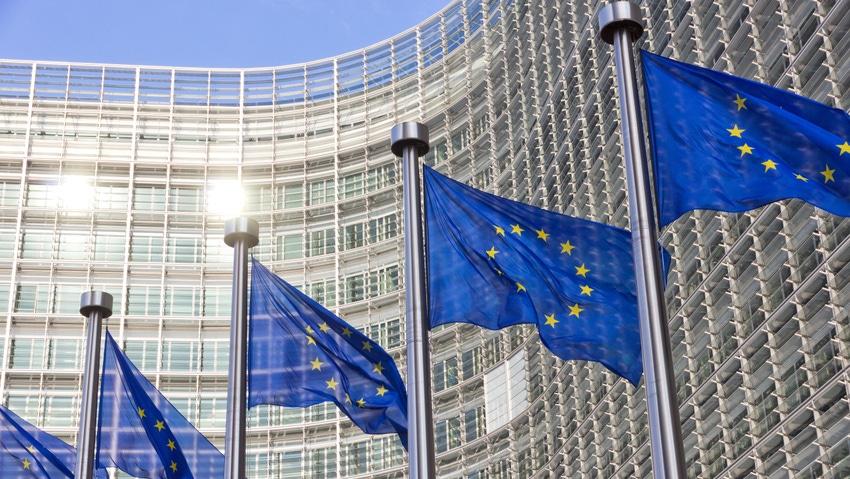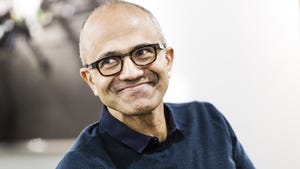Eurobites: Telecom, tech heavyweights bang the drum for light-touch EU regulation (again)
Also in today's EMEA regional roundup: Nokia offers network digital twin on Android phones; VMO2 back on Ofcom's naughty step; A1 Austria declares outlook stable after 'solid' Q1.

Five telecom and tech heavyweights have joined forces ahead of a forthcoming meeting of EU member state ministers in Dublin to issue a now familiar call for lighter regulation and the development of what they call a "true Digital Single Market." Vodafone, Ericsson, Nokia, Intel and IBM are the ones putting their names to the statement this time around, telling those pesky EU policymakers to "avoid introducing new regulatory burdens that make it difficult for telecom companies to speed up network deployments, or for other businesses to adopt digital tools." Their joint statement also contained a plea for "a fresh approach to merger controls and spectrum allocation, involving longer licences and harmonized rules across Member States."
Nokia has launched Network Digital Twin Explorer, a network monitoring tool that works on Android smartphones. The tool could, says Nokia, be particularly useful on an industrial campus, helping to verify whether it's a network problem or device gremlin that's putting a spanner in the works of a particular process. It provides near real-time data about network coverage in a dashboard format using maps, graphs and tables.
Virgin Media O2 is on the naughty step with UK communications regulator Ofcom again as customer complaints continue to stack up on both the fixed-line and mobile sides of the converged operator's business. Ofcom's figures, which cover the period from October to December last year, showed that Virgin Media remained the most complained-about broadband, landline and pay-TV provider, though the operator did see a sizeable fall in all of these areas when compared to the previous quarter. As for the O2 bit, it was the most complained-about mobile operator of the quarter, with complaints, somewhat ironically, once again primarily concerned by how customers' complaints were being handled.
MTN and Huawei have jointly opened a Technology Innovation Lab in Johannesburg, South Africa, and plan to concentrate their research energies on areas such as 5G and 5G standalone, AI, Big Data and cloud computing.
Polish operator Play has extended its contract with US-based Netcracker, the business support systems (BSS) vendor. Netcracker's software provides support for various functions, from onboarding new subscribers to service activation, including billing and payments.
A1 Austria's CEO, Alejandro Plater, has described his company's outlook for 2024 as "stable" after it saw first-quarter EBITDA (earnings before interest, tax, depreciation and amortization) rise 4.2% year-over-year, to €454 million (US$483 million), on group revenues that inched up 0.7%, to €1.26 billion ($1.34 billion). Service revenues grew in all territories apart from Belarus and Slovenia.
Qumulus, a private cloud company based in the north of England, has been awarded £350,000 ($436,000) in funding from the UK government as part of the Innovate UK Smart Grant scheme. The cash will enable Qumulus to employ more people and scale up its offering globally.
Slovak Telekom and T-Mobile Czech Republic – both part of the Deutsche Telekom empire – have returned to long-standing technology partner 24i to improve the user experience on their respective TV channels. One of the innovations being introduced courtesy of the 24i Video Cloud is the creation of so-called synthetic channels, which are similar to FAST (free, ad-supported streaming television) channels but operators have the option to assemble them without ads.
Read more about:
EuropeAbout the Author(s)
You May Also Like












